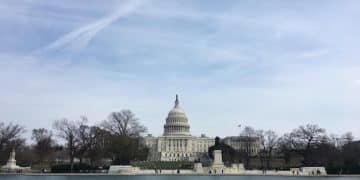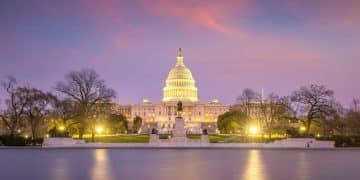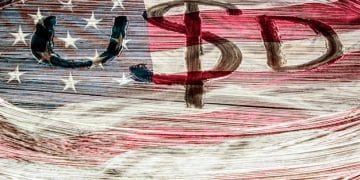Dark Money’s Influence on US Elections: Campaign Finance Analysis
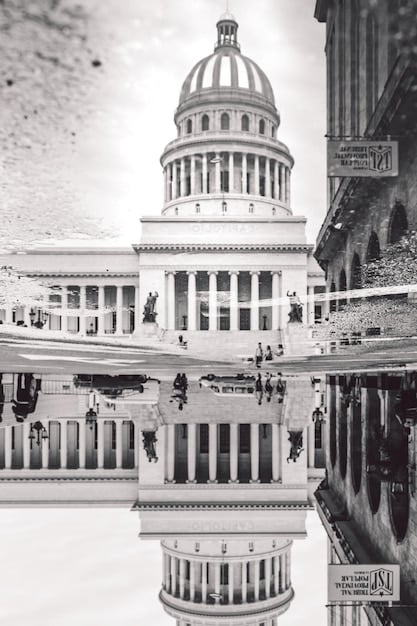
Understanding the Influence of Dark Money in US Elections: A Political Analysis of Campaign Finance Laws delves into the obscure financial contributions that significantly impact electoral outcomes, bypassing traditional campaign finance regulations and raising concerns about transparency and accountability in the American political system.
The American political landscape is often shaped by forces unseen, and among the most influential yet least understood is the phenomenon of understanding the influence of dark money in US elections: a political analysis of campaign finance laws. This article seeks to illuminate the complex channels through which undisclosed funds flow into campaigns, influencing policy and shaping public opinion.
The Rise of Dark Money in US Politics
The term ‘dark money’ refers to funds used to influence elections where the donors’ identities are not disclosed. These funds often flow through non-profit organizations, which are not required to reveal their contributors, creating a veil of secrecy that obscures the true sources of political influence.
What is Dark Money?
Dark money operates outside the traditional campaign finance system, allowing individuals and corporations to contribute unlimited amounts to politically active non-profits. These groups, in turn, can spend money on political advertising and other activities to support or oppose candidates.
The Legal Framework
The legal basis for dark money’s prominence lies in interpretations of campaign finance laws and Supreme Court decisions, most notably *Citizens United v. Federal Election Commission* (2010). This ruling, which equated money with free speech, paved the way for unlimited independent expenditures by corporations and unions.
- The Citizens United decision significantly weakened campaign finance regulations.
- Non-profit organizations are not required to disclose their donors.
- Dark money allows for greater corporate and individual influence in elections.
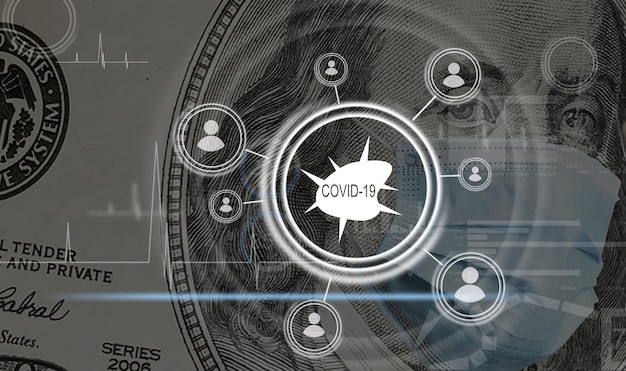
The rise of dark money has transformed the landscape of political campaigns, enabling special interests to exert influence without accountability. This lack of transparency raises serious questions about the integrity of the election process and the potential for corruption.
The Impact of Citizens United
The *Citizens United* Supreme Court decision fundamentally altered the nature of campaign finance in the United States. By striking down restrictions on independent expenditures by corporations and unions, the court unleashed a torrent of outside spending that has reshaped electoral politics.
The Ruling’s Implications
The *Citizens United* ruling asserted that corporations and unions have the same free speech rights as individuals and that limiting their spending on political campaigns violates the First Amendment. This interpretation opened the door for unlimited independent expenditures, enabling the rise of super-PACs and dark money groups.
Increased Outside Spending
Following the *Citizens United* decision, outside spending in elections skyrocketed. Super-PACs and other independent expenditure groups poured millions of dollars into political advertising, often attacking candidates and influencing voters without any direct coordination with campaigns.
- Unlimited independent expenditures were allowed.
- Super-PACs and other independent groups emerged.
- Campaign finance regulations were significantly weakened.
The *Citizens United* decision has had a profound and lasting impact on American politics, leading to increased outside spending, greater influence by special interests, and a lack of transparency in campaign finance. This ruling continues to be a subject of intense debate and legal challenges.
Channels of Dark Money: Non-Profits and Shell Corporations
Dark money often flows through a complex network of non-profit organizations and shell corporations, which are used to obscure the true sources of political funding. These entities provide a means for donors to contribute anonymously to political campaigns and influence elections without public scrutiny.
Non-Profit Organizations
Non-profit organizations, such as 501(c)(4) social welfare groups, are not required to disclose their donors, making them a popular vehicle for dark money. These groups can engage in political activities as long as it is not their primary purpose, allowing them to spend substantial sums on political advertising and other campaign-related activities.
Shell Corporations
Shell corporations, which are companies with no active business operations, can be used to funnel money into political campaigns anonymously. By creating a series of shell corporations, donors can effectively hide their identities and obscure the true source of political funding.
- Non-profits offer a legal way to avoid donor disclosure.
- Shell corporations further obfuscate funding sources.
- The combination makes tracing funds extremely difficult.

The use of non-profit organizations and shell corporations makes it incredibly difficult to trace the origins of dark money. This lack of transparency poses a significant challenge to regulators and watchdogs seeking to hold donors accountable and ensure fair elections.
The Role of the IRS in Regulating Dark Money
The Internal Revenue Service (IRS) plays a critical role in regulating non-profit organizations, including those that engage in political activities. However, the IRS has faced challenges in effectively overseeing these groups and enforcing campaign finance laws.
Oversight and Enforcement Challenges
The IRS has faced criticism for its handling of non-profit organizations involved in political activities. Critics argue that the agency has been slow to investigate and penalize groups that violate campaign finance laws, allowing dark money to flow unchecked into elections.
Political Pressure
The IRS has also been subject to political pressure, particularly in the wake of controversies over its handling of conservative non-profit groups. This pressure has made it difficult for the agency to effectively enforce campaign finance laws and maintain its independence.
- IRS enforcement is often slow and inconsistent.
- The agency faces political pressure from both sides.
- Resources are often limited, hindering effective oversight.
Despite these challenges, the IRS remains a key player in regulating dark money. Efforts to strengthen the agency’s oversight capabilities and insulate it from political interference could help to curb the flow of undisclosed funds into political campaigns.
Proposed Reforms to Campaign Finance Laws
In response to the growing influence of dark money, various reforms to campaign finance laws have been proposed. These reforms aim to increase transparency, limit outside spending, and strengthen enforcement of existing regulations.
Disclosure Requirements
One of the most common proposals is to require non-profit organizations to disclose their donors, thereby shedding light on the true sources of political funding. This would make it easier to hold donors accountable and ensure that elections are not unduly influenced by special interests.
Contribution Limits
Another proposed reform is to reinstate or strengthen contribution limits to prevent individuals and corporations from donating unlimited amounts to super-PACs and other independent expenditure groups. This would help to level the playing field and reduce the influence of wealthy donors.
- Donor disclosure would increase transparency.
- Contribution limits would reduce the power of wealthy donors.
- Stronger enforcement would deter illegal activity.
These proposed reforms face significant political opposition, particularly from those who benefit from the current system. However, proponents argue that these changes are necessary to restore integrity to the election process and ensure that all voices are heard.
The Future of Campaign Finance in the US
The future of campaign finance in the United States is uncertain, but it is clear that the issue of dark money will continue to be a major focus of debate and political action. The outcome of this debate will have profound implications for the integrity of elections and the health of American democracy.
Potential Scenarios
One potential scenario is that campaign finance laws will remain largely unchanged, and dark money will continue to play a significant role in elections. This would likely lead to further erosion of public trust and increased influence by special interests.
The Path Forward
Another possibility is that meaningful reforms will be enacted, increasing transparency, limiting outside spending, and strengthening enforcement of existing regulations. This would help to restore integrity to the election process and ensure that all voices are heard.
| Key Aspect | Brief Description |
|---|---|
| 💰 Dark Money | Undisclosed funds influencing elections via non-profits and shell corporations. |
| ⚖️ Citizens United | Supreme Court ruling enabling unlimited independent expenditures. |
| 🔎 Transparency | Lack of donor disclosure hinders accountability and fair elections. |
| 🏛️ Proposed Reforms | Efforts to increase transparency, limit spending, and strengthen enforcement. |
FAQ
▼
Dark money refers to political spending by groups that don’t disclose their donors. This allows individuals and corporations to influence elections without revealing their identities.
▼
Citizens United enabled unlimited independent expenditures by corporations and unions, paving the way for super-PACs and politically active non-profits that don’t reveal donors.
▼
Non-profit organizations, particularly 501(c)(4) groups, are not required to disclose their donors, making them ideal vehicles for anonymously funneling money into political campaigns.
▼
Proposed reforms include requiring donor disclosure for non-profits involved in political spending and reinstating or strengthening contribution limits to reduce the power of wealthy donors.
▼
The IRS oversees non-profit organizations, but faces challenges due to limited resources, political pressure, and difficulties in enforcing campaign finance laws effectively.
Conclusion
Understanding the influence of dark money in US elections is crucial for maintaining a transparent and fair democratic process. The complex interplay of campaign finance laws, court decisions, and the strategies employed by special interests necessitate ongoing examination and potential reforms to ensure accountability and equitable representation in American politics.
